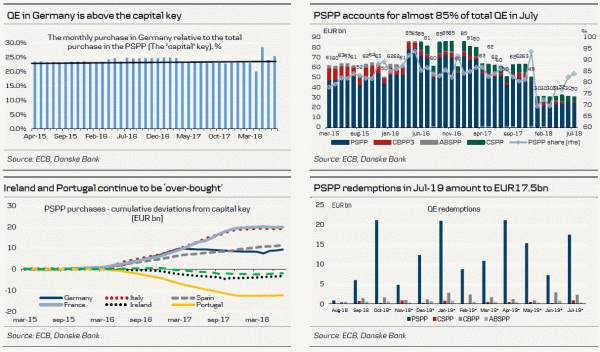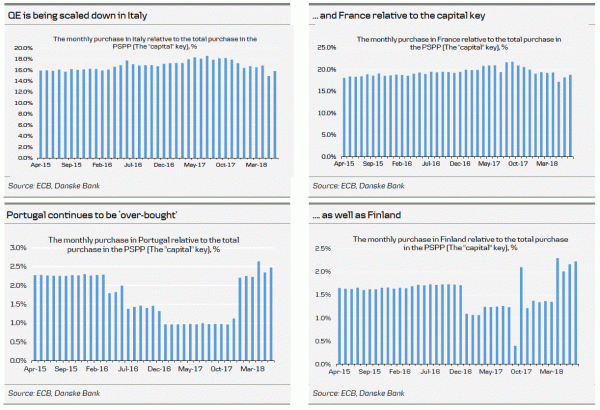Finland, Ireland and Portugal ‘over-bought’ in July. Germany also ‘over-bought’ due to ‘redemption effects
The QE figures for July showed an increase in the PSPP (public sector purchase programme) purchases relative to the private sector programmes (CBPP3, ABPP, CSPP). Hence, almost 85% of the monthly QE of EUR30bn was spent on the public sector rather than the private sector. The increase is driven by major countries such as Germany. The PSPP purchases have increased from EUR20bn in January 2018 to EUR25bn in July 2018. The main beneficiary of this increase in the PSPP purchases has been Germany, where the ECB is buying above the capital key, while it is below in e.g. Italy and France. The PSPP purchases are also above the capital key in Finland and Portugal – see charts on page 2. However, the numbers are ‘blurred’ by the redemptions and since there have been large redemptions in Germany, there has to be an additional purchase in German government bonds as reinvestments are done in the same country.
This is different for Spain and Italy, where part of the redemptions is related to the SMP programme. This is very visible in the redemptions from the last week’s financial statement from the ECB. Here, there were redemptions of EUR7.3bn from the SMP programme and redemptions of EUR5bn in the PSPP programme. Given that there are almost no redemptions in August in the PSPP, the ECB holdings of the Italian government bond that matured on 1 August are almost entirely held by the SMP programme. The Spanish bond that matured on 31 July was held by the PSPP programme as there were redemptions in Spain and EFSF


